Tagged: thoughts
How Social Media & Blogging Helped Me Discover Who I Am
- by Alyson Shane
**Trigger warning** For some of you who come from abusive relationships, some of the content in this post may act as a trigger. Please read responsibly.
The other day Meg Athavale of LUMO shared a terrific article on Facebook called "The Psychological Price of Entrepreneurship" and one of the sections of the article really stood out for me:
Rather than showing vulnerability, business leaders have practiced what social psychiatrists call impression management--also known as "fake it till you make it."
This really struck a chord with me because as someone who makes their living online, keeping my personal brand as authentic as possible is one of my biggest priorities. Sure, I may not blog or tweet about every tough therapy session or anxiety that pops up, but as a business owner with an audience I believe that I have a responsibility to be transparent about the challenges in my life as well as my successes. I am a human being, after all.
With that in mind, I wanted to discuss the struggle that I've faced with reconciling my "authentic self" (aka, the one you see here, on social media, and in person) with the person that I was raised to believe that I was.
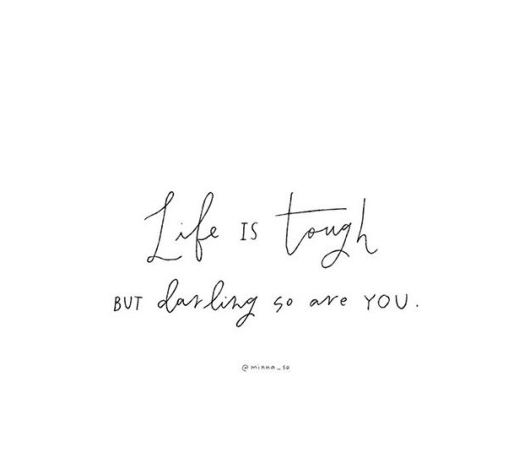
Some backstory
For those of you who don't know me personally, I haven't spoken to my parents or the majority of my family since early 2015 (you can read more about that here). Recently my brother had a baby, and I had to make the decision to not reach out or be involved. This wasn't a decision that I made lightly, but it was the right one for me and my mental health, and I stand by it.
This decision prompted my mother to leave a comment on my blog. Some of her statements (minus the attempts at gaslighting) included:
- For some reason Alyson, which I have to confess, escapes me, you seem to be under the impression that you are far superior to the rest of us.
- Maybe because you are a, 'writer', and can use, 'big', words, you think it gives you an advantage that we don't have.
- I think you need to get down off that pedestal you've erected for yourself and get rid of your overblown ego.
- You are so focused on living up to your superficial, 'queen of the Internet', alter ego, that you no longer know how to be a decent human being.
- Could it be that there is a wee bit of human in you after all?
The reason that I'm sharing these personal details is because I don't believe that vague descriptions adequately convey the narrative I grew up with. The comments you see above (which thankfully aren't a part of my life anymore beyond being a very helpful example for the sake of this article) were the things that were told to me on a daily basis.
Needless to say I entered adulthood as a pretty unhappy, insecure, and confused individual.
Discovering myself online
When I first started blogging back in 2003 I couldn't have predicted the multitude of ways that it would eventually come to change my life. I've always gravitated towards writing as my favourite form of self-expression, and blogging has always seemed like a natural and easy way to do it.
My blog is a reflection of who I am and the things that I feel are valuable and important to share, and from day one it caused issues between myself and my family. As illustrated in my mother's comments above, my ability to articulate and share my thoughts, and my willingness to do so, was seen as attempts at being superior and were frequently thwarted with threats of getting "cut out" of the family.
Despite this resistance from my home life I soon realized that I had found a community of like-minded individuals who wrote, shared, and published with the same authenticity that I wanted to be doing. In the late 2000's I started reading Raymi the Minx, the busblog, oceanaria, and a plethora of now-defunct but wonderful blogs who inspired me to be myself, no matter what. I'd always grown up believing that "nobody cared" about my thoughts or feelings, and the blogging community taught me that it wasn't true.
Around 2009 I also began discovering social networks. In particular I gravitated towards Twitter, which helped me express myself and connect with people whom I likely wouldn't have met otherwise. I doubt that I would have met Stef, Colin, Adrian, LJT, Kevin, and a variety of other wonderful people whom I now count among my dearest friends if it hadn't been for Twitter, and being active on this social network helped me expand my reach and connect with colleagues, clients, and a support system that I had never imagined was possible.
Around 2011 my active presence online as well as my obsession with internet culture and memes led to some of my Twitter followers (jokingly) dubbing me the "Queen of the Internet". As odd as it sounds, this nickname, however in jest, helped me start to develop a confidence that I had never experienced before. Suddenly people were turning to me to ask questions about social media and blogging on a regular basis. I started speaking at Red River College's Creative Communications program, at the MBlog conference, and my work was published in the local paper.
Contrasting these successes against the person that I had always believed myself to be (the selfish, superficial person who didn't care about anyone but herself) became harder and harder. Not only were my friends, colleagues, and peers informing a narrative which challenged my previous thoughts and feelings about myself, but I was starting to slowly stop believing those things, as well.
The catalyst
In retrospect the biggest change in perspective came when I published my post Living with the Mean Reds, which detailed how it felt to live with anxiety and feelings of low self-worth every day. At the time I was terrified of hitting "publish", and I was overwhelmed and surprised at the outpouring of support and kind words that I received as a result.
Social media and blogging provided me with a supportive community where over time I was able to learn to shed the negative self-image that I'd grown up believing. By having a space that was completely free from my family's influence I was able to start growing, learning, and not being so afraid all the damn time. I started a business, I started therapy, and I started investing my time and energy into the things that really mattered instead of indulging in drama because I felt obligated to participate
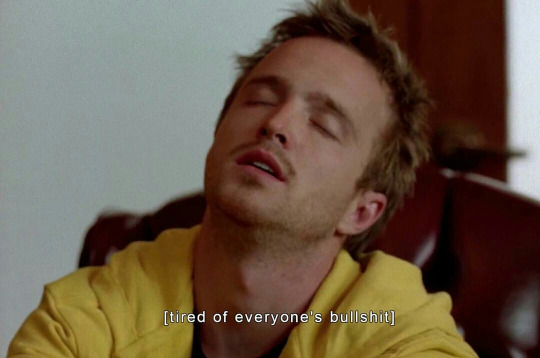
Support from these communities help me finally realize that refusing to make room for the negative things in my life doesn't make me a bad person. It means I have a deep enough understanding of my needs to make hard (and sometimes unpopular) decisions.
Why does this matter?
Social media and blogging are extremely powerful tools which can connect us with people all over the world. They allow us to find communities and support systems online we can start to explore parts of ourselves that scare us, or that we don't feel we can express to the people in our day-to-day lives.
By finding ways to express myself online I was able to discover things about myself, make connections, and find opportunities that simply wouldn't have been available to me otherwise. The encouragement I received from my followers, readers, friends, and my very supportive partner led me to where I am today, and though I'm not perfect I'm working hard at building the life I want and deserve.
Sharing this stuff isn't easy. It's doesn't feel great to admit that my mother is the way that she is, or that my family doesn't understand who I am, but it's the reality that I'm in and I'm thankful to be able to have a platform through which I can share these thoughts and experiences as I work through them.
Through blogging and on social media I was able to find a place for myself and connect with communities of supportive and like-minded individuals who helped me start making a place for myself in the real world and, most importantly, in my own eyes.
Most of the bloggers I've followed over the years don't know how much they helped me, and there's a good chance that if my words help someone that I may never know, either. But if reading about the challenges that I've faced helps someone else seek out the supports they need to start healing and being happy, then that matters a great deal, and I'm happy to share my stories and be a part of that process and thankful to be able to help.
As always, thanks for reading, and thanks for being here with me while I figure this stuff out.
(If anything I've described in this post re: family expectations, relationships, or narratives imposed upon you by your family sounds familiar, I strongly encourage you to check out /r/raisedbynarcissists, a wonderfully supportive Reddit community that has helped me a lot.)
Content Marketing vs Social Media
- by Alyson Shane
One of the things I find myself discussing again and again - with clients, friends, colleagues, and people who are genuinely confused about what I do, is the difference between "content marketing" and "social media."
Usually when I tell people I do content marketing and social media they respond with something like "oh, you just publish stuff on Twitter, right?" which is really only a small sliver of the equation.
While content marketing heavily involved social media, there's much more to creating content than just pushing it out across a variety of social channels. Even though there's a lot of overlap they are, in fact, two very distinct things, each with different goals, strategies, and processes.
So, once and for all, let's clear the air!
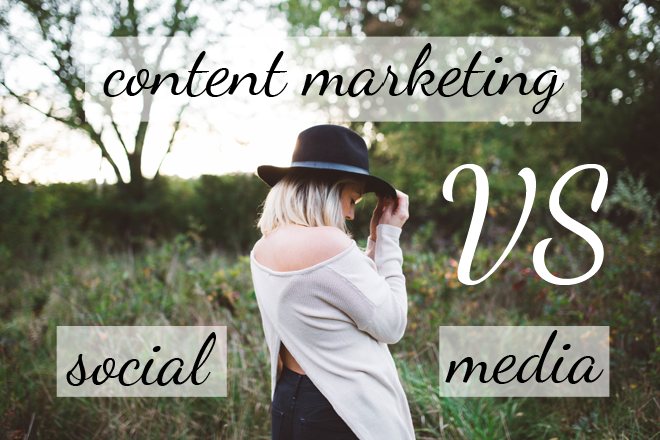
The Sun and the Solar System
Social media marketing is the focus of your marketing activity which is located on social networks.
When marketers share content on social networks like Facebook, Twitter and Pinterest, they're operating within the specific confines of those networks. Sure, they're sharing their own content in a lot of cases, but it's on someone else's network, and none of those networks connect to each other all that often (eg: you don't share Tweets on Facebook, and vice-versa.)
Conversely, the centre of every content marketing strategy is the organization's website.
A business' website is designed to be the central place for all of their branded content. Once the content has been published on the central website, it gets shared across the various social networks where the company has a presence. So, "social media" is the act of using specific social networks, and "content marketing" is creating content on your own website to be published and distributed.
The way that I like to describe this process is the "Sun and Solar System." In this example, your brand website is the 'Sun' - the focal point in all of your marketing efforts, and the brightest and most important star in the sky. The other social networks that you use to distribute the content are 'planets' which orbit around the central hub. Like planets in real-life, the 'planets' in this example operate independently of each other, all have unique features, and have one thing in common: they exist because of the 'Sun'.
Types of Content
Social media marketing is designed to fit within the confines of that social network. For example, a Tweet on Twitter needs to be 140 characters or less, Pinterest pins need to have eye-catching photos, etc.
Content marketing, on the other hand, can come in a variety of styles, flavours, and lengths because websites allow for much more creative and extended types of content. On a website brands can publish blog posts, videos, infographics, white papers and eBooks... the sky's the limit, really.
This flexibility in content means that brands can exercise a higher level of creativity in the content they create on their website, because they don't have to worry about falling within a 140 character limit.
Goals
While content marketing and social media marketing are used in tandem to reach specific goals, they actually are designed to achieve two different things:
Content marketing is focused completely on the 'Sun', which allows it to focus more on demand generation and content publishing than on getting the word out about it.
As a brand publishes content on their website, the 'Sun' in the middle of their solar system, they can use social media to direct traffic back to it, developing a relationship with their audience.
Social media is used to promote brand awareness. When a visitor lands on a brand's website, the brand has full control over what kind of experience that visitor is going to have, and they already have the advantage because the potential customer has already indicated interest by going there in the first place.
Because social networks can't be controlled by brands and businesses, the purpose of those networks then becomes to use them as a means to generate discussion and interact with their audience. Additionally, because social networks are mostly democratic (I say 'mostly' because of the recent introduction of YouTube Red) and all user account are created equally, social networks become a place for brands to have informal interactions with their audience.
Social networks also notify you when someone is talking about you, which makes tracking customer mentions, feedback, and criticism a lot easier to track than ever before.
Why Content Marketing?
Content marketing and social media go hand-in-hand, but many people I talk to focus only on the social media side of things because seeing a brand's presence across multiple social networks gives the impression that it's more important.
This is not true, and I'd actually argue that content marketing actually the more important of the two.
That's because in order for your social media feeds to have a way to genuinely connect with your audience, there has to be a central 'hub' (or Sun) at the centre of things to drive brand awareness and help craft a story. You can't tell your audience about who you are if you don't create the kind of content that helps them understand and care, and social networks just aren't as efficient at doing it because you have to play by the rules of each specific network.
This is why content marketing and social media marketing, though two different things with different purposes, are actually intricately linked.
Did this explanation make sense? What do you think about the difference between content marketing and social media? Tell me in the comments!
Vingt-huit
- by Alyson Shane
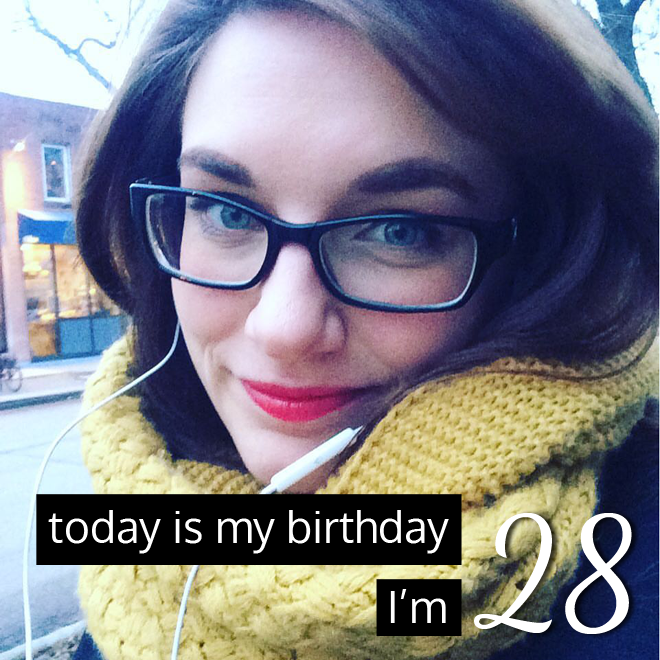
The Good
Life is good.
I feel so thankful for my friends, the plethora of people who make me smile and touch my life in so many ways. Being able to watch the people I care about grow and create their futures is amazing to watch, and something that I feel fortunate to be able to share with them.
And for John, my partner through everything, who reminds me every day what it is to devote yourself to the things you love, and to always strive to do good, and to act with kindness and sincerity. I love him more than I can describe, and am so thankful for the time we have together.
The life I have now, where I get to wake up to my best friend every morning, spend my days doing work that I love, and experience the (slightly terrifying) adventure that is running a business, is one I wouldn't trade for anything in the world.
The Bad
Earlier this year, as part of my efforts to heal and grow, I asked my parents for some space while I started going to therapy. Their reaction was painful to accept: my mom simply didn't respond or acknowledge the email I wrote to her explaining how I felt, and my dad told me to "have a nice life." When confronted with a reality that they didn't like, they decided to gloss over it by simply not dealing with it and hoping it would go away.
I can't describe to you how awful it feels to have your parents disregard your feeling and experiences this way. It's devastating, and it hurts every time I think about it.
However, it was an eye-opening experience for me. I'd grown up believing that behaviour like this was commonplace and acceptable, but talking to a professional helped me understand that this isn't. It's not normal for parents to cut their children out, or punish them with a wall of silence when confronted with something that upsets them, or makes them uncomfortable.
I started realizing that a lot of the behaviours I was working to get rid of: anxiety attacks, crippling fear of failure, feeling like I'm never good enough, were largely the result of my relationship with my parents, and that their decision to cut me out entirely was a blessing in disguise. In the last ten months I've come to have a much deeper understanding of who I am, and what my values are, and what I want from my life than I've ever had before.
Sure, part of that is likely just a result of growing up and the normal maturing process, but not having to defend my actions constantly, or try to find love and approval that didn't come with strings and expectations attached, has made such a tremendous difference in my life.
I haven't talked about this too much because I don't want to air too much of my family's dirty laundry. However, I do feel obligated to touch on it and share it with you, because it's been an important part of my growing process, and because nobody, not even a family member, has the right to treat you badly.
The Incredible
Without a doubt, running my business full-time has been the biggest and most important change in the past year. Honestly, I'm still not used to it. There are days when I find myself walking around in the middle of the day, maybe on the way to a meeting, or doing some errands while the stores are empty, and think "I can do whatever I want today." That's pretty fucking empowering.
I like being one of those people who get excited to talk about work, and it's been an interesting transition to stop thinking of work as something taboo, or something I'd rather not think about or discuss outside of "regular working hours" to something that I love enough to talk about pretty much constantly.
Of course, it's not all roses and fat stacks; running your own business is scary. There's no guaranteed monthly salary, no pension plan, and no benefits. Everything I do, I have to do for myself. But having to depend on myself (and some advice from much-appreciated mentors and colleagues) has given me confidence and helped me discover so much about myself, and I wouldn't trade that for the world.
The Future
For the first time in my adult life I feel excited about what's to come.
This is new for me. For most of my life I felt directionless; unsure of what I wanted, where I'd go, what I would do with myself. I took jobs I didn't like, hung around with people I didn't much care for (and who didn't really care about me in return), and made decisions based on fear.
I was a scared, insecure, and anxious person.
These days I feel different. Sure, I still get anxious, or stressed, or have moments of doubt, but I've been learning to handle them a lot better, and those paralyzing moments are becoming fewer and farther between.
I truly feel like this was the year where I came into my own, and I'm so excited to see where I'm going to go.
As always, thank you for sharing this journey with me.
xox
yr girl Shaner
How Digital Assistants Could Replace Search Engines
- by Alyson Shane
Back when I was a kid, the term "personal digital assistant" usually referred to one of these:

(remember Palm Pilots? No? Just me?)
Nowadays, your personal digital assistant (or PDA, for short) refers to something much more literal, though much more incorporeal. Apple's Siri and the super-popular Google Now (which I use every day and love) are just two examples of modern-day voice recognition software which allows us to speak our commands and questions into our smartphones and get real, tangible results.
I've been using Siri for a while, but my recent foray into Google Now's voice recognition has me thinking about the future of personal digital assistants, and what this means for the future of search engines and SEO.
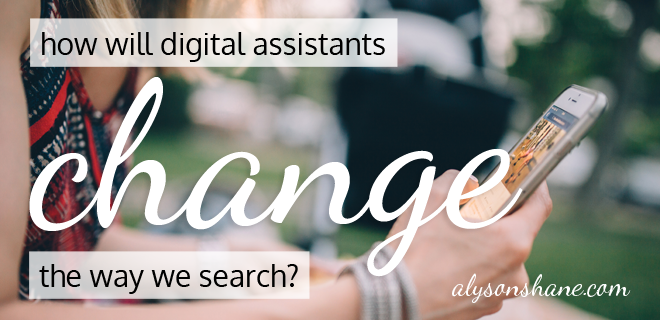
Our Searches are More Sophisticated
Back in the early days of Google their algorithm was pretty simple: keywords typed into the search box were matched with keywords on websites, and links were counted and mixed in order to determine a ranking system.
These days search engines are much more sophisticated, using a process called semantic search to analyze the intent behind a search query, not just the search query itself, and to rank the most appropriate results based on both of those factors (this is why tactics like keyword-stuffing work against modern websites.)
Similarly to the early days of search engines, digital assistants are becoming more sophisticated all the time. Newer versions of Siri struggled with interpreting spoken words for garbled speech, and generally being unhelpful. However, recent updates to Siri and Google Now have extremely accurate voice recognition capabilities and are quickly learning to adapt to issues like thick accents in a way that, previously, they were unable.
Integrated Internet & Wearables
Okay, so I've told you why digital assistants are being used more often, but why would anyone be using them in place of a conventional search engine?
One of the major differences is that our technology has become interwoven with our everyday lives - once upon a time, not too long ago, the Internet existed as a separate place that we "dialled into" at clunky desktop computers, opened a browser, and typed in our search query. These days, almost all of our devices (smartphone, desktops, laptops, etc) are connected to the internet automatically, making the Internet an integral part of our lives.
The biggest reason for this, of course, are smartphones. The introduction of the iPhone and the subsequent waves of mobile devices featuring web browsing, mobile apps, and a variety of other features means we're always connected to the Internet.
Additionally, as "wearables" like the Apple Watch, the Android Wear, and a variety of other kinds of "smart watches" become increasingly more popular, the need for better and more accurate digital assistants to replace typing searches into a tiny screen will likely increase as well.
What all of this this means is that the Internet isn't some place that you physically go to in order to find information; it's all around us, all the time, and it's becoming available on increasingly smaller screens than ever before. It also means that because we're constantly searching for things on-the-go, a browser-based website might not be the best or most efficient way to look for it.
The Effect on SEO
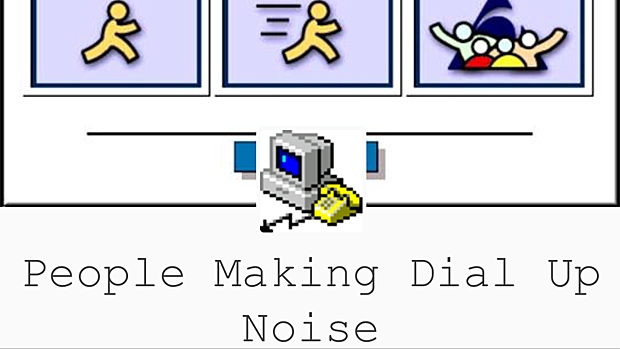
As the ways in which we search for and find information change, so too will the ways that search engines find, organize and display results. Below are a few ways that I think voice-based searching and the increasing popularity of digital assistants could influence how we search:
Voice-Based Queries
We've already discussed this increase a bit earlier in this post, but if the trend continues we'll start to see spoken queries become longer and more conversational. What this means for bloggers, marketers and other people like me is that having "conversational content" (like what you're reading right now) will become the ideal kind of content to match up with colloquial queries.
This also means that current SEO strategies will have to become more general, and will be less reliant on keywords or short phrases than they currently are.
The Rise of Instant Answers
We're already started to see the beginning of the instant-answer phenomenon with Google's Knowledge Graph, which is a system that provides answers to questions and queries without forcing users to visit a specific website like Wikipedia or IMDB.
If you're not familiar with how Google's Knowledge Graph works, and it's purpose, this quote from super-smart Neil Patel should do a better job of explaining it than I can:
The search engine is primarily designed to collate data about everything on the face of the earth, sync the data with their search algorithm, and make the information accessible quickly and easily, no matter what platform the searcher uses.
Digital assistants will take this further, giving users clever, concise answers rather than redirecting them to a Wikipedia page, or a recipe page with six paragraphs and fourteen photos before the actual recipe. This means that websites may see a dip in traffic and visibility.
Geographic Relevance
Personal aside: this has been one of my favourite things about Google Now. I love having an app that knows where I am and can tell relevant information based on my past queries without having to search for it. Heaven!
Anyway... Since digital assistants are generally used on the go, local businesses can benefit by offering content specific to that geographic region to try and increase foot traffic into their brick-and-mortar stores.
This also opens up interesting new avenues for optimization, where stores could optimize their information so that it gets mentioned by digital assistants more frequently, or when customers are close by.
Meeting Immediacy
Especially as voice recognition becomes even more commonplace and sophisticated, I think we'll see people start to turn to their digital assistants for more immediate and complex needs. So we'll be saying more complex commands like "find me an East Indian restaurant open past 8pm tomorrow night" as opposed to searching "East Indian restaurants in Winnipeg" and going through a list of restaurant hours, taking up a bunch of time.
This means that the demand for tutorial-like content will likely increase, which will have an impact on content creators to adapt the way that they write, or how they share audio and video-based content. I'm looking at you, 1000+ word long recipe articles.
What Does All This Mean?
To quote the ever-wise Bob Dylan "the times, they are a-changin'" and technology is continuing to shape how we live our lives at an increasingly aggressive pace.
While it may take some time for digital assistants to replace search engines, I do think that voice recognition is the way of the future, and that we'll eventually see most forms of traditional text-based search engines become phased out. This means that content creators, marketers, and other digital-types will have to adapt our strategies in order to continue to get noticed.
What are your thoughts on digital personal assistants and SEO? Tell me in the comments!
Having a Family of Choice
- by Alyson Shane
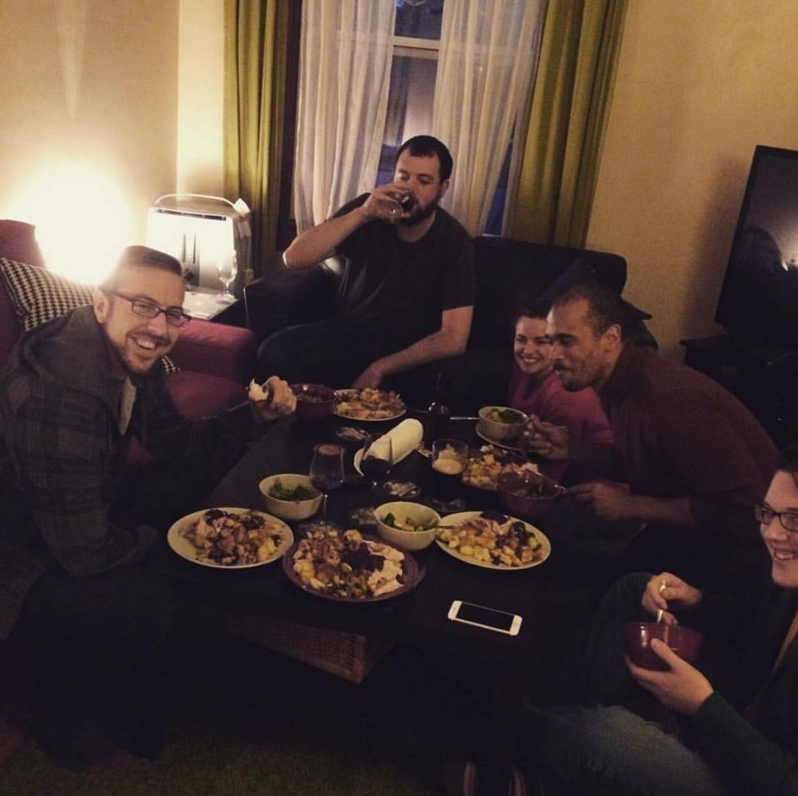
Yesterday I spent my Thanksgiving surrounded by some of the people who matter most to me. We made dinner, had drinks, shared stories, and otherwise enjoyed each other's company. It was a terrific way to wrap up the long weekend, and I'm still glowing just thinking about how much fun it was.
This is the first Thanksgiving I've had without my family in a long time, and as we move into a season where, traditionally, we spend more time with our families, I wanted to talk a little bit about creating a Family of Choice, and how it's helped me.
Some backstory
For those of you new to this blog, I haven't communicated with my parents since last winter. Shortly after the new year I decided to seek out therapy and to start to work through a variety of anxieties and issues related to self-worth that were the result of my relationship with my mom, and one of the things my therapist suggested was to take some space from my mom while I focused on healing.
Needless to say asking for space didn't go over very well, and the fallout was that now neither of my parents speak to me. As a result I don't really speak to any of my extended family, and have very limited contact with my two younger siblings.
I don't talk about it very often because it's a difficult topic to discuss; most people have pretty solid relationships with their families, and even the ones who have rocky ones generally maintain some level of contact with their families despite regular drama and other issues that families deal with.
On being 'No-Contact'
I think that one of the hardest things that adults face is whether or not we should keep negative people in our lives. For many of us, there's that one relationship that we know we shouldn't maintain, but we do so because (often) we feel guilty about not maintaining it.
Think about that one "friend" who you don't really like, but always get invited around because they've always been there, or that family member who you despise but still invite to Christmas because you "have to."
Stop the madness! You never "have to" do anything that upsets you or makes you feel uncomfortable.
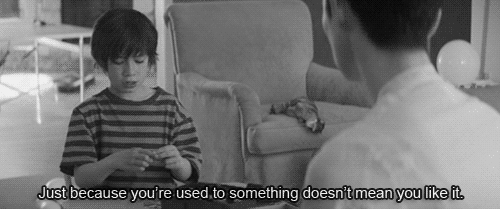
If someone is making you feel bad, guilting you, or otherwise upsetting you on a regular basis, you don't have to include them in your life. Getting to be a part of your life is a privilege, not a right.
For example, I have a family member whose way of "helping" was to challenge me on every single thing I did - I shudder to think about the hours I spent defending all of my decisions, from who I was dating, to my career choice, to where I wanted to go on vacation. It was insanity! I'd see their name pop up and my blood pressure would rise just thinking about the argument that was going to ensue.
If someone in your life is making you feel this way -your parent, friend, colleague, whatever- you have a right to ask them to stop. If they respect you, they will. If not, then it's okay to not politely explain why they don't get to be privy to your life and decisions anymore.
Creating a Family of Choice
"Family of Choice" is just what it sounds like: the people you choose to have around you in your life, and who are close to you. These people differ from your "Family of Origin" which are your blood relatives; mum, dad, siblings, etc.
I've heard lots of people make comments like "friends aren't the same as family" which I think is total BS. I really feel like many of us use "they're family" as an excuse to put up with meddling, guilt, and other nonsense that we wouldn't otherwise put up with from anyone else. How insane is that?
Being blood relatives doesn't (and shouldn't) make maintaining one relationship more important than maintaining others, and just because someone isn't related to you by blood, that shouldn't diminish the importance of the relationship.
Being close to your Family of Choice is just as good as being close to your Family of Origin, if your situation permits it - there's no law stating that just because you weren't born into the same family, that you can't care about someone the same way you would a blood relative.
Creating and cultivating my Family of Choice has been a really important part of navigating this whole No-Contact experience for me. Knowing that I have a handful of close friends whom I can turn to in a crisis helps alleviate feelings of loneliness or isolation which I occasionally feel when thinking about my present circumstances.
In addition to being a support system, a healthy Family of Choice can also serve as a benchmark for other relationships in our lives. Why would we want to spend time talking to or putting up with people who make us feel bad, or tear us down, when we have a support system of great people we can reach out to instead?
Why does all of this matter?
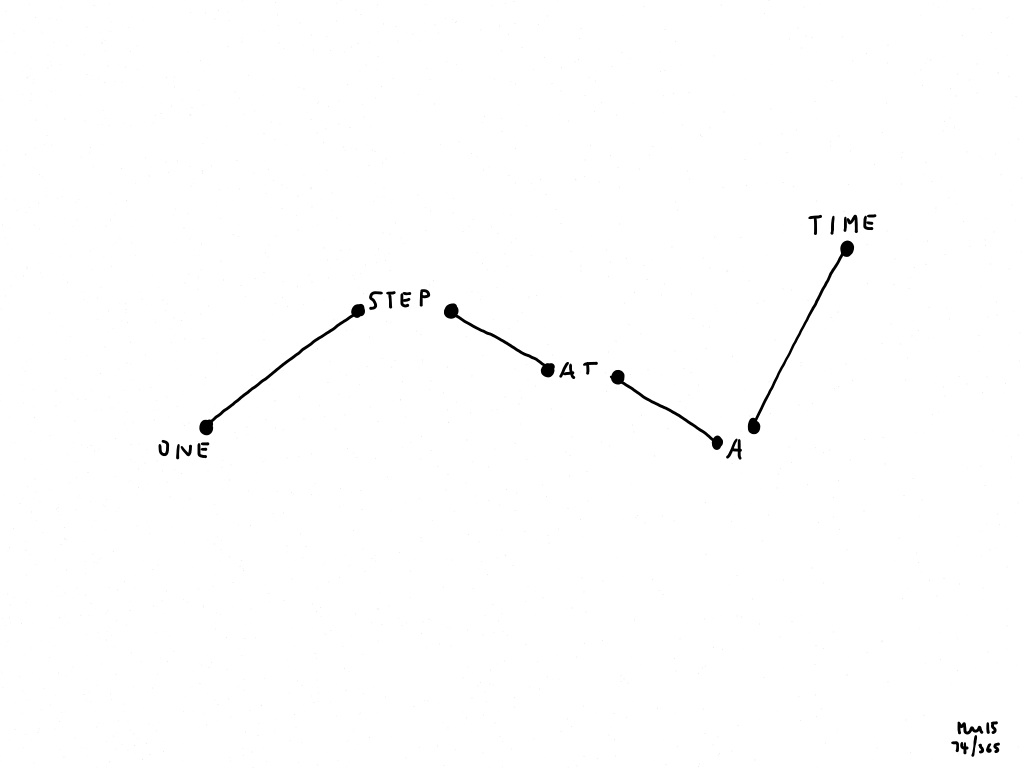 It matters because we have a right to be happy, and to surround ourselves with kind, positive people who care about us and want to see us succeed.
It matters because we have a right to be happy, and to surround ourselves with kind, positive people who care about us and want to see us succeed.
Most of the time this is pretty easy to do; lots of us are lucky enough to have defaulted into families who are supportive, and manage to find great friends, partners and colleagues whom we care about, and who want the best for us, as well.
However, it's easy to start to fall into the habit of allowing negative people to start to infiltrate our lives, and to start giving them too much weight and authority over our thoughts and our actions. This can be especially true if we've grown up in a family, or have that one family member, who makes us feel like shit. We put up with it because we're used to it.
Creating a Family of Choice means that you get to choose the people you want to share your life and experiences with. It means taking control over your own happiness, and ensuring that everyone who touches your life does so in meaningful and positive ways.
I didn't write this post to encourage you to cut out your family or anything like that, but I wanted to write something to let you know that we can look to outside sources (friends, partners, colleagues, mentors, etc) to help us feel fulfilled and loved. It's hard, and it's a weird process, but it does work and it's worth doing if you aren't getting the supports that you need from your Family of Origin.
We all have the tools at our disposal to build the kind of families and lifestyles that we want to have - what that looks like is entirely up to you.
Have you ever struggled with letting go of a difficult relationship? Was it a friend, family, or loved one? Tell me in the comments, or if it's too personal, send me an email - I'm always available to chat.
Smiling With My Teeth
- by Alyson Shane
I was going back through some old photos the other day and I noticed a trend that I think a lot of people fall into: I was making the same face in every photo.
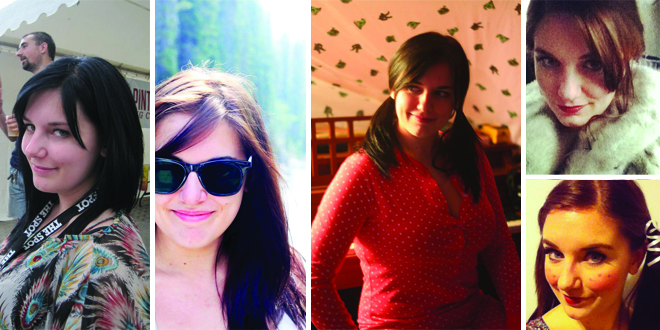
See what I mean?
Going back farther, I noticed that I had the habit of making what I refer to as the "Ugly Girl Face" - aka, a generally grotesque or distorted face in photos.
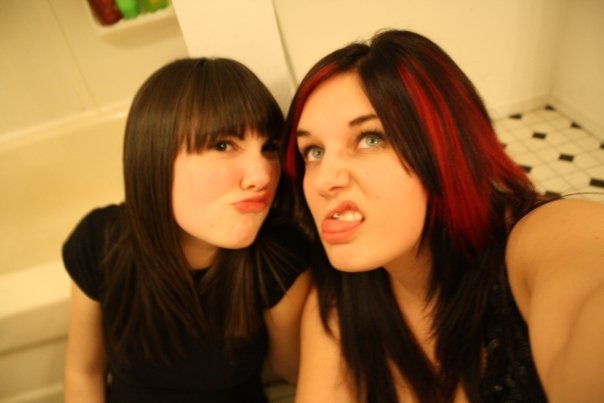
This face, referred to as the "After Hours Sex Face" thanks to a video that I'd seen online, was one that I pulled because I didn't like how I looked in photos. I felt self-conscious about my hair, my makeup, my personality, and most importantly my weight.
Making the AHSF was my way of drawing attention away from aspects of myself that I was uncomfortable with; I was able to hide behind it, even in photos.
After a while I started to grow up and become more confident and the AHSF (thankfully) became a relic only available in old, old Facebook albums.
Except around this time another trend emerged: I started making the same face in every photo.
If you look at photos of me from 2010-2013, I make the same face in almost every picture: head cocked to the side, close-lipped smile, etc.
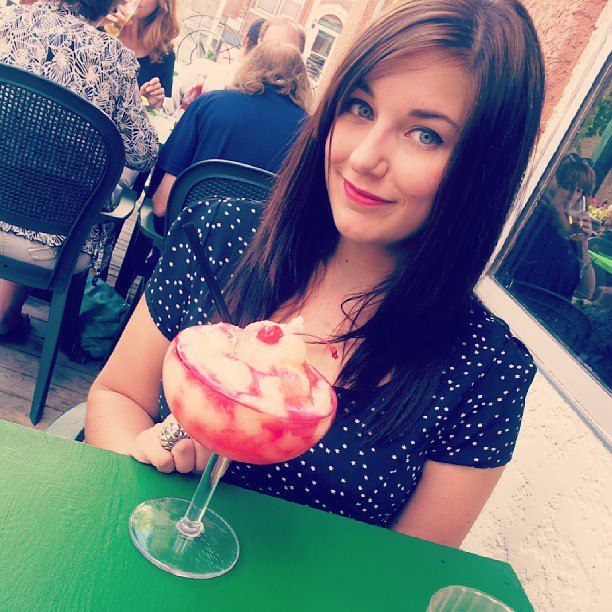
While these photos don't necessarily make me look bad (that would defeat the purpose) they certainly don't express my personality in any memorable way.
Then, around mid-2014 this started to change. I started smiling with my teeth, laughing in photos, and sharing images of myself that didn't look totally posed and put-together. In fact, my "candid" laugh photos started to rapidly become my favourite pictures.
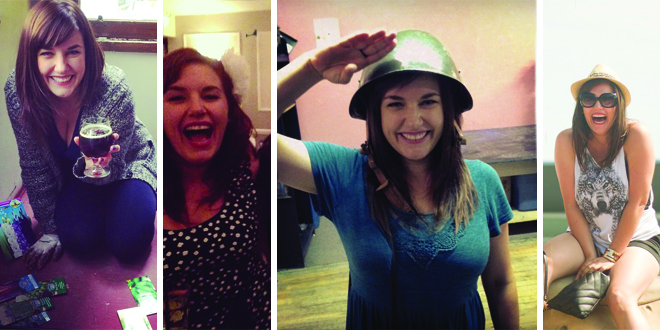
The more I thought about this shift, the more I realized that the way that I smiled in the photos was indicative of how comfortable I was with myself: I've spent the last year going through some major emotional and personal changes, which seem to have manifested themselves in a way that I hadn't previously thought about.
I realized that over time I had gone from one extreme to another: distorting my face to mask how I felt about myself deep down, to accepting who I was and sharing it with a huge burst of laughter and a smile.
It makes me wonder about women who pull faces in photos, or strike the same pose in every group photo. Is this what, subconsciously perhaps, is going on? Why do we worry so much about how people perceive these photos of ourselves?
Have you noticed changes in how you present yourself in photos over the years? If so, why do you think that is? Let's discuss!
Why I Blog
- by Alyson Shane
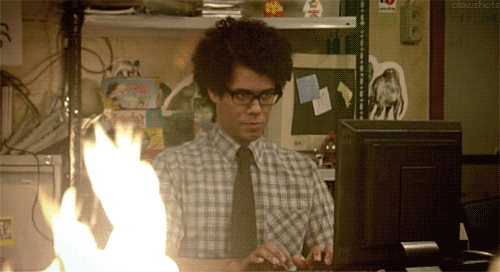
Chris Brogan wrote a post the other day about not quitting blogging, which I loved.
He didn't mention older blogging platforms like GeoCities and Livejournal, likely because he didn't used them but it made me think back to my early "web logging" days and discovering that I could chronicle my life online.
I purged my Livejournal years ago, thankfully, but a quick google search brought me back to many of my old high school friend's still-intact LiveJournals.
It was weird, seeing those memories from over a decade ago all in one place. Now we have a plethora of ways that we share information: Blogs, Facebook, Twitter, Tumblr, Instagram, LinkedIn, SnapChat... to name just a few. Now we're scattered all over the internet.
The best way that we had to share information at that time was huge, text-heavy posts or quizzes.
(Remember quizzes?)
It was weird, going back through people's memories and noticing that they all started to drop off around the same time (2007-2008). Except me. I kept blogging, largely fueled by my friend Kira and my recent discovery of the best blog of all time, the busblog.
Back then, though, my blogging sucked.
I had no voice and no way to distinguish myself from blogging powerhouses whose lifestyle blogs I creeped to no end other than I hadn't yet figured out how to do what they did, yet.
But I kept at it because a writer will write even when nobody reads - and for a long time (longer than I'd care to admit) nobody wrote a damn word.
But part of the secret to blogging success is to not give up. I've had comment dry spells, I've been trolled to no end, I've written trash and masterpieces and been called out and praised for all of it. It's been a magnificent ride.
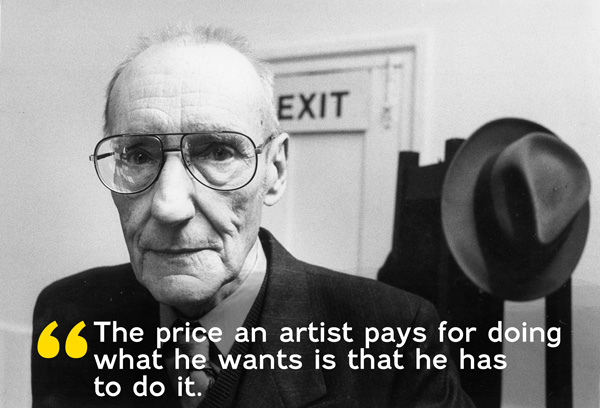
Andrew Sullivan said in one of my favourite pieces from The Atlantic that the blogosphere is a giant conversation, which is true, though I'd argue that everyone posting anything online these days is a participant - this isn't exclusive to the blogging community.
We're all shouting out into the void, linking and commenting and sharing in an attempt to make our own voices heard. He also said:
"[to blog] is to let go of your writing in a way, to hold it at arm’s length, open it to scrutiny, allow it to float in the ether for a while, and to let others... pivot you toward relative truth."
Yet, just last week, Andrew Sullivan stopped blogging.
One of the biggest proponents of blogging shuttered his blog and gave up.
Which left me wondering: if Andrew Sullvian quit, if all my old friends quit, if blogs die and are left abandoned every day... why do I keep doing it?
Because, as Tony said in a recent post: this is the best time to blog.
The fakers, the half-assers are dropping like flies and the ones of us who are here for the substance and the experience of sharing get to reap the benefits of an audience who are more interested, more engaged, who and will quite happily pivot us towards that relative truth that we all seek.
Blogging is scary. Blogging is beautiful. Blogging is how writers, like me, explore ourselves.
Before the internet we had to scribble in diaries or publish 'zines or write in to newspapers or journals or magazines or publish books hoping that someone somewhere would find them and fall in love with our words and our hearts, which we poured out through pens just as much as I type them out to you, now.
I was lucky enough to be born into a time when my words can exist digitally.
My digital words, like those of my old friends, like those of Andrew Sullivan, can reach untold numbers of people. We can shape each other's realities through what we say online with words that never fade, never get lost, and that's amazing.
How could I ever stop, knowing that truth?
I can't.
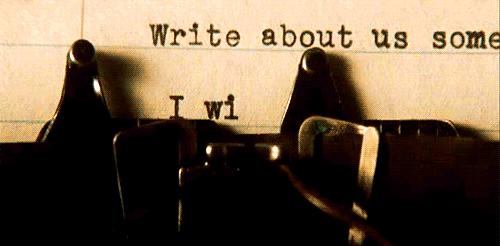
Our Digital Selves
- by Alyson Shane
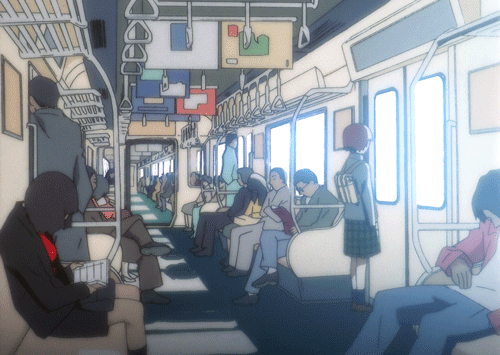
I'm watching Serial Experiments Lain which according to Wikipedia is an avant-garde anime from the 90's that explores ideas like identity, consciousness, reality and communication.
I started watching it over a decade ago with my friend Eric, who also introduced me to Star Trek and Arnold Schwarzenegger movies and the film The Thing and the Fallout video game series.
This was also around the time that I started blogging, back in the days of GeoCities and eventually LiveJournal and (sigh) DeadJournal which was about as emo as you can get. After that I moved onto Blogger where I stayed for several years and iterations of my blog and also of myself, and then to Wordpress, and now to the blog you see before you.
I've been living my life online for more than half of the time I've been alive, which is both fascinating and slightly terrifying.
It's weird to think that there are snippets of ourselves scattered around the internet, these little scraps of ourselves that we leave littered in comments or status updates or blog posts.
Like a trail of breadcrumbs leading from our past to future selves.
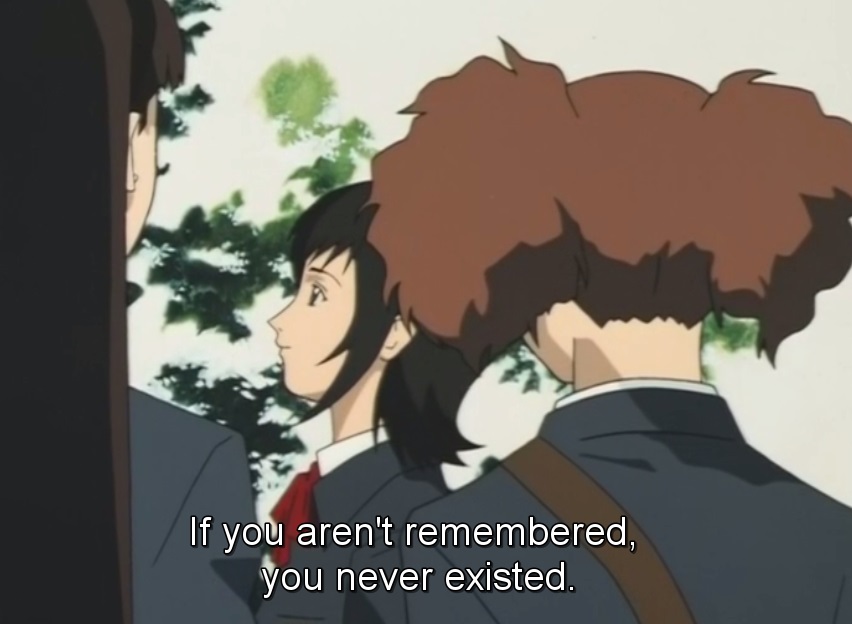
In an email the other day my aunt, bless her heart, said "I hope you aren't too personal online because it could come back and bite you in the future" which is true but there's also a level of curated-ness that goes into who we are online, at least most of the time.
We have to be careful of how we represent ourselves and what we say because those words stay with us forever. The internet never forgets.
On the other hand we've been handed this near-limitless tool to share and communicate and store memories, which is what a blog is when you get right down to it.
"Weblog" - remember that word? I barely do.
So we walk this weird tightrope using these various tools which allow us to we curate these finely-tuned versions of ourselves, masquerading as "authentic" and, for people like me, attempting to do so without over-sharing too many personal details that could damage us or those around us.
Because we still have secrets from the internet. At least, for now.
But will we be able to, in the future?
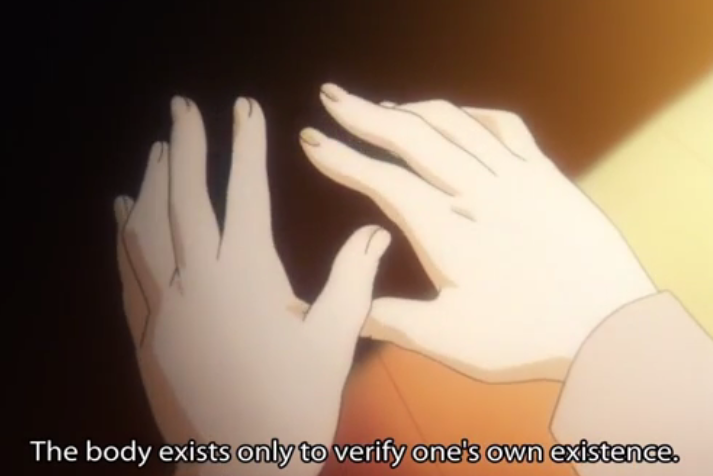
In Serial Experiments Lain a girl kills herself and claims that she is able to live on in the Wired, which is the show's version of the internet, because she uploaded her consciousness prior to her death. I remember thinking about that while reading an article a few years back that discussed a statement made by Google's Ray Kurzweil, who made the claim that we will be uploading our minds and essentially becoming digitally immortal.
There's something about that idea that terrifies me and I don't know what.
Maybe it's the idea of losing my physical body.
Maybe it's the idea of bearing all of my consciousness to the digital world.
Maybe I'm just too attached to my analog existence
at least for the moment.
The Suburbs
- by Alyson Shane
The place where I lived my childhood is gone.
The street is still there, but the deep ditches where I used to watch tadpoles and, later in the season, scoop frogs into my tiny hands, are gone.
The bridges that extended over them where I spent hours on my tummy, watching the water rush through the long grass with my friends, have been dismantled and taken away.
The fields on either side of my street, which connects Main Street to McPhillips Avenue, have been swallowed up by cheap particleboard, concrete driveways, and houses in pale, inoffensive shades of beige and grey stucco.
In the spring we would put on our too-big rubber boots and wade through the flooded plain, chasing each other through the tall green and orange plants. We used to pull bulrushes, fat and bulbous, apart above our heads, showering everything in their soft wool and watching it drift away in the wind.
We spent our summer afternoons climbing around an old, small hill covered in trees at the end of a dirt road that ran parallel to a ditch which ran parallel to the train tracks. There were old, large pieces of concrete that we, using all of our collective strength, pushed into "couches" and "chairs" to sit on in place of the long grass, which had spiders hiding in it.
There were small burned-out areas where older kids tried to start fires every summer, and the black, charred remains of the trees fascinated us. Especially when, against all odds, they would begin to bloom again in the following year.
The city would come and re-tar our back lane in the middle of the summer and our naked feet would get sticky-black as we chased each other on bikes or on foot over the newly-filled potholes.
One summer we had mice in our attic. I remember my dad pulling one, stiff with rigor mortis, out of a trap that he had set and saying to my mother, who was delirious with anxiety "we live next to train tracks and have fields on both sides of the street. What did you expect?"
In the winter more City workers came in huge plows to clear the back lane, pushing aside the snow to form a jagged, uneven wall along the lane that we would climb over in our thick snow pants. At night we would toboggan in the glow of the streetlights.
I would to fall asleep to the sound of the trains going by. The sound still soothes me.
I used to look out from my parents' bedroom window, over the lane and over the field behind our house. Before I was born you could see right to the Perimeter Highway, but slowly newer developments began popping up and creeping ever-closer.
We moved when I was ten, before the suburbs crept nearer and took over. There had been talk of a wall to divide the new subdivision with my old back lane; now there is a tastefully-high fence that runs along the outer edge of the yards.
My old street runs like a vein between two new subdivisions, which flattened the hill and cast big, imposing shadows over the little houses on Murray Avenue. It once felt worlds apart from the suburbs, but in recent years has become consumed by it.
I've heard people talk about having to drive up my old street to get to their identical, perfectly-paved streets which lead to their identical stucco houses with their identical yards with a single tree in front.
They talk about the old, dated duplexes with brown wood features and chain-link yards; the useless, weird, vacant space in front of their property where the ditches used to be; the back lanes that spoil their view.
They can't see it for the beautiful place that it was because the suburbs have consumed what made it so magical.
On the surface it feels like I've lost that place forever. That it was surrendered to the inevitable march of progress, to urban sprawl, to hastily-constructed homes with no soul.
But Murray Avenue still has a heart. You just have to know where to look.
Come with me, sometime. I'll show you.
The Illusion of Being Busy
- by Alyson Shane
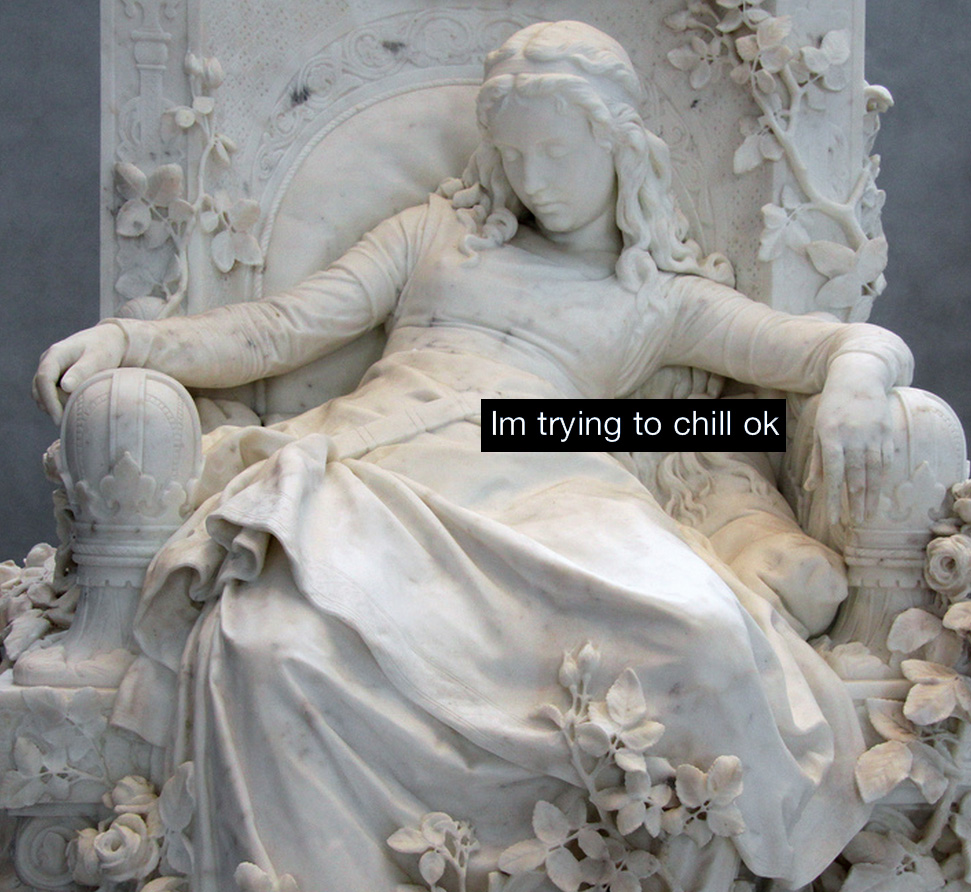
Last Friday night I found myself alone.
John was with the Campers at the screening of the Innovation Alley movie, my plans had fallen through, and I had a few hours to spend however I wanted.
Sitting in Second Cup in Osborne Village, plucking away at my laptop and sipping my London Fog, I got to thinking about how busy we all "appear" to be all the time - always going places, seeing people, sharing pictures and thoughts and experiences.
It started to feel a bit overwhelming, to be honest.
Since I've started my #Project365 Instagram project I've tried to make a point to go out and have an experience, or find something interesting worth photographing every day.
It's not that I lead a boring life - far from it, I'm actually quite busy day-to-day, but a lot of that revolves around my 9-5 and being on my laptop doing freelance work.
Not exactly glamorous, and I'm pretty sure that if I Instagrammed my computer screen as often as I find myself parked in front of it, working, I'd have zero followers pretty freakin' fast.
So I started thinking about the idea of "looking busy" and figured I'd ask you guys what you thought, and if you feel social pressure to "look/be busy," through what you post online.
Some of my favourite answers are below & honestly really surprised me:
Not busy, no...I think everyone knows I'm busy! I make an effort to look thoughtful in what I share. No junk.
Kendra Jones
"I'm always busy. Sometimes that's just busy laying down on YouTube, sometimes it's work. I'm busy with my time and that's fine."
Brett Enquist
Busy is a choice, but some do see it as a badge of honour.
Claudine G
Nope. I live for me not others. Took a while to learn that though.
Terri F
Everyone (or almost everyone) has a day job that keep them occupied. I'm more interested in how people spend their non-work hours, whether it's going on vacation, reading a great book, cooking or playing outside.
Shel Zolkewich
Hell no. I'm as busy as I wanna be. And you can quote me on that.
Jeope Wolfe
No. I am busy a lot, but if I'm not, I'm not gonna lie about. That would be dumb. #TrimbleDoesntConform
Adrian Trimble
What about you? Do you ever feel pressured to "look busy"?


